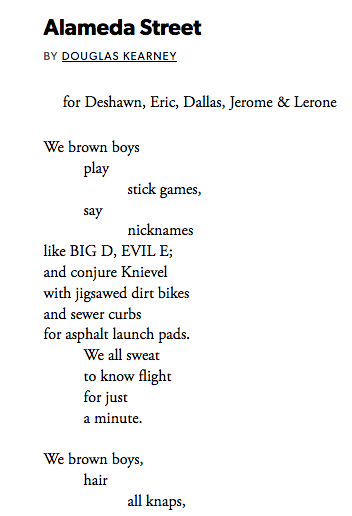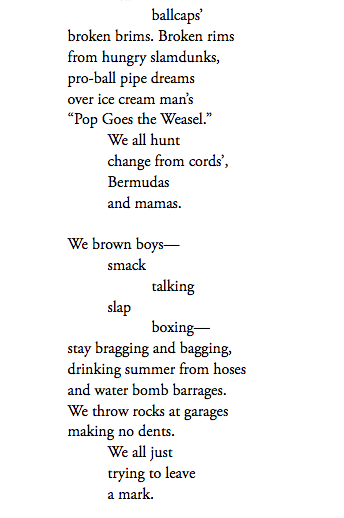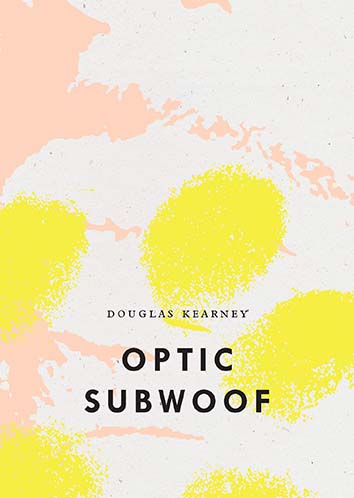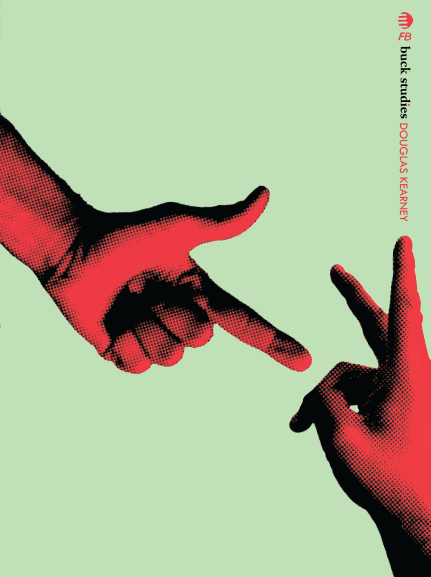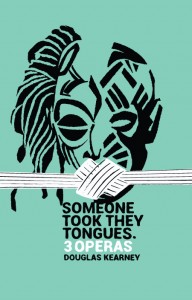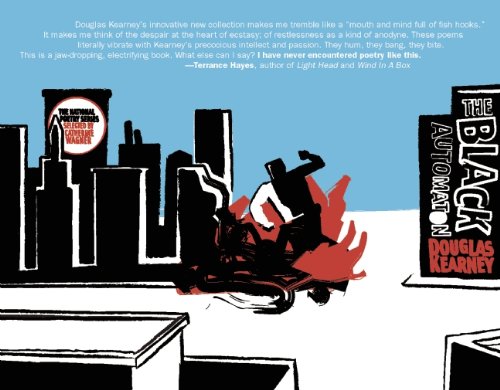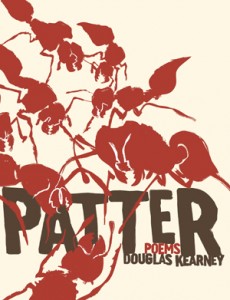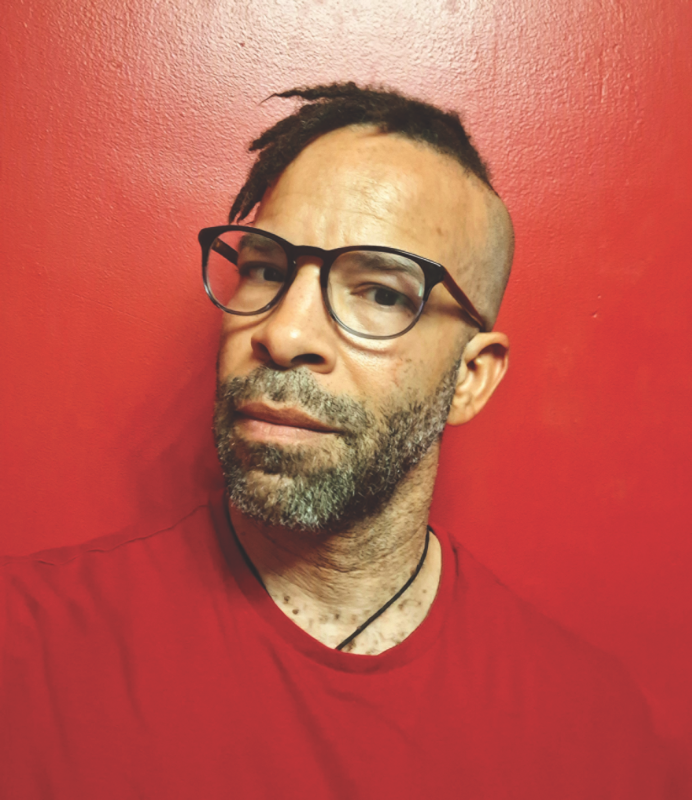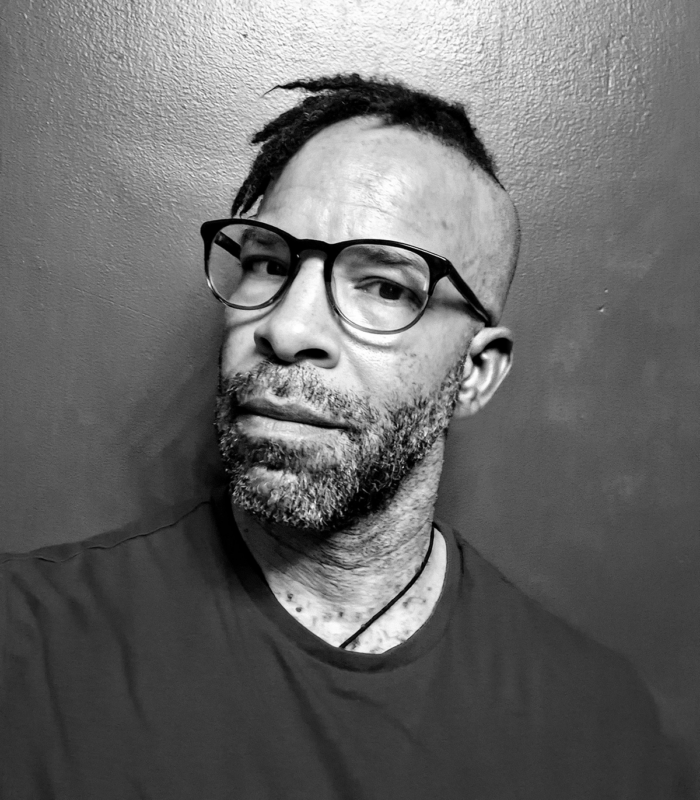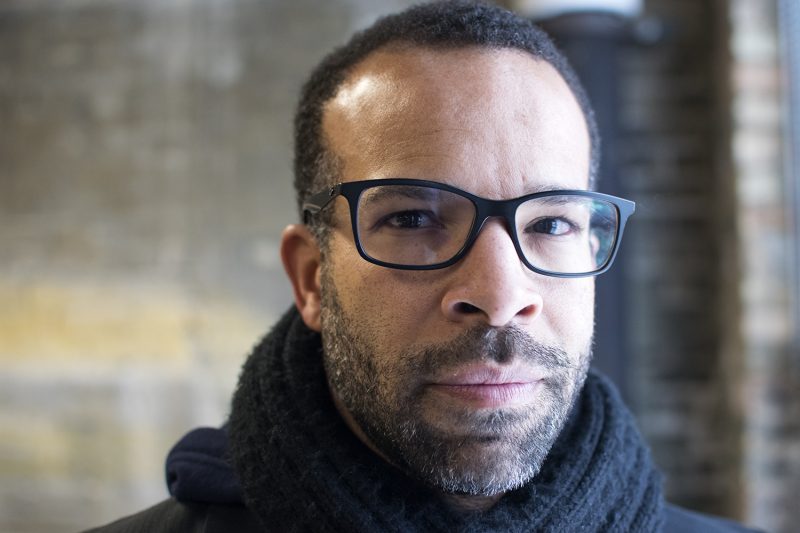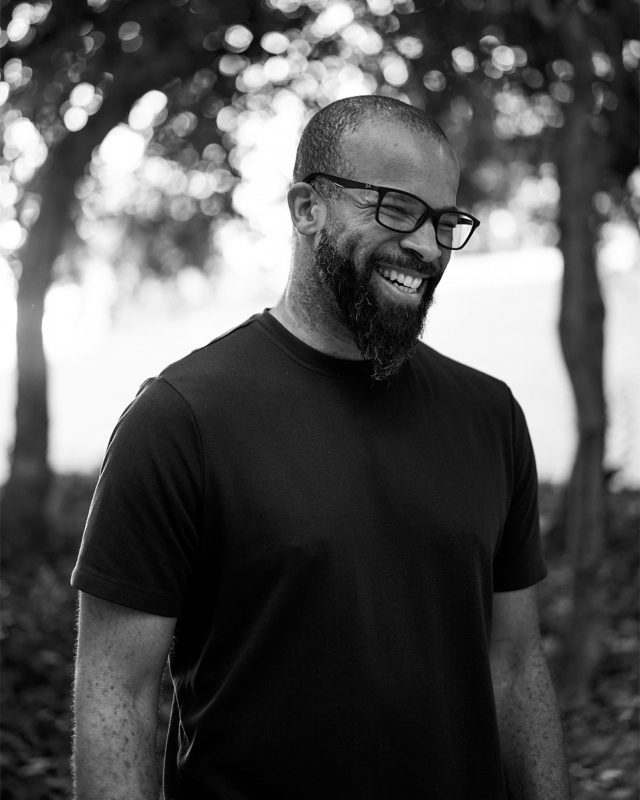
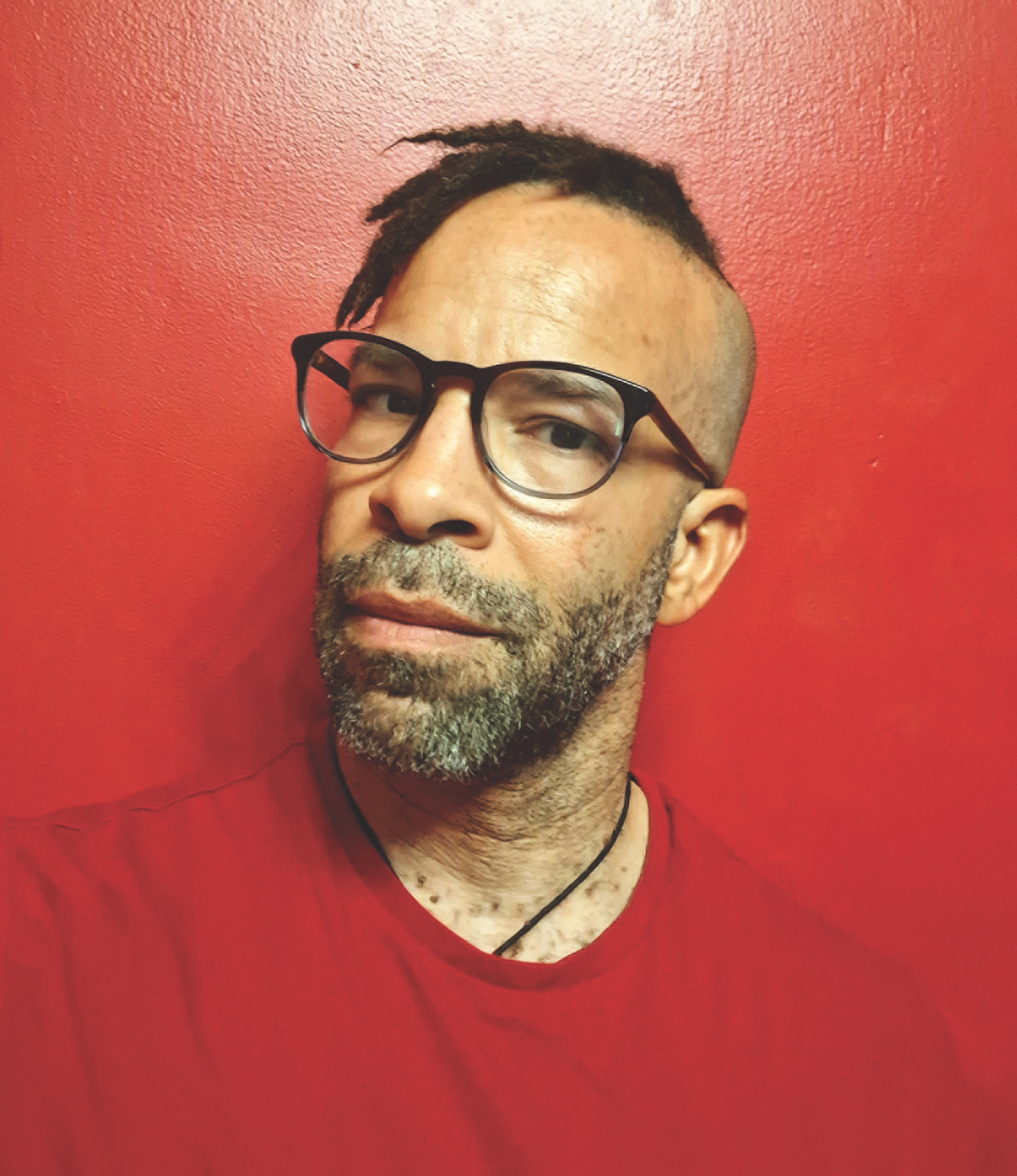
Douglas Kearney
Award-winning Poet & Librettist
Mixed-media Performer
CLMP Firecracker Award
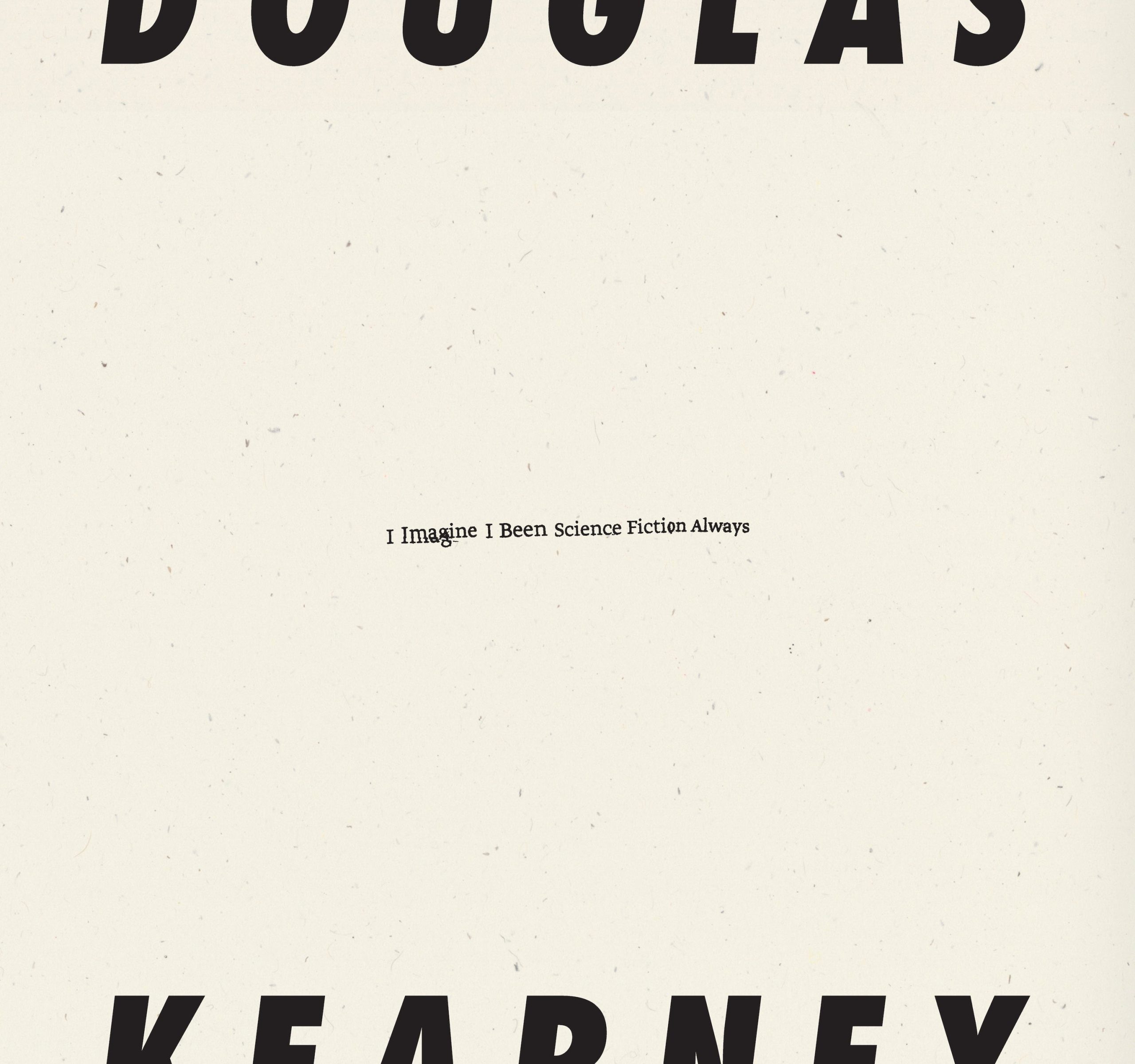
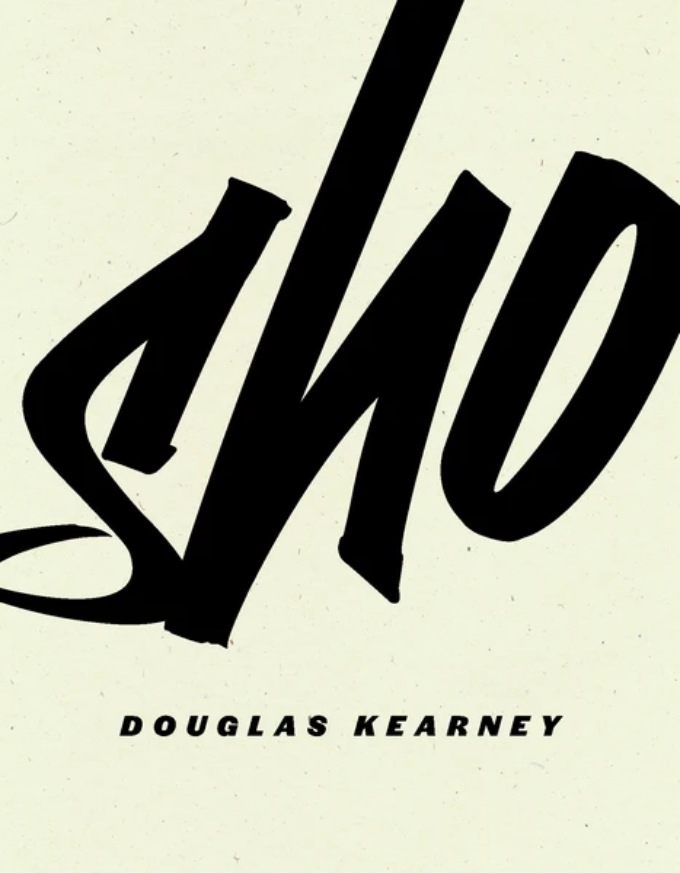
Readings &
Lecture Topics
- Ekphrasis
- Violence in Poetry and Art
- Visual Poetry
- Collage as logic in Aesthetic Practice
- An Evening with Douglas Kearney
Biography
“Where, oh where would we be without the dynamic intelligence and feats of lyric daring that Douglas Kearney’s work has delivered to American poetry?”—Tracy K. Smith
“Douglas Kearney uses the weapons of poetry to write a curriculum of justifiable rage. Beyond anger, there is exasperation, grief, despair, and mischief.”—New York Journal Of Books
“I have never encountered poetry like this before.” —Terrance Hayes
The dynamic Douglas Kearney is a poet, performer, and librettist who has published seven books that bridge thematic concerns such as politics, African-American culture, masks, the Trickster figure, and contemporary music. Sho (Wave Books, 2021) was the winner for the 2022 Griffin Poetry Prize, the 2022 Minnesota Book Award for Poetry, and was a finalist for the National Book Award, the PEN/Voelcker Award, and the Kingsley Tufts Award. Navigating the complex penetrability of language, the poems in this collection are sonic in their espousal of Black vernacular strategies, while examining histories and current events through the lyric, brand new dances, and other performances.
Most recently, Kearney authored the visual poetry masterpiece I Imagine I Been Science Fiction Always (Wave Books, 2025), a work that pushes further into Kearney’s long-time practices of performance typography, collaging pre-existing media sources to create singular, multiplicitous texts that defy neat categorization. Through AfroFuturistic exploration of these techniques, Kearney presents a sustained consideration of precarious Black subjectivity, cultural production as self-defense, the transhistoric emancipatory logics of the preposition over, Anarcho-Black temporal disruption, and seriocomic meditations on the material and metaphysical nature of shadow.
Optic Subwoof (Wave Books, 2022) is a collection of talks that Kearney presented for the Bagley Wright Lecture Series in 2020 and 2021, which won the 2023 Pegasus Award for Poetry Criticism and was a finalist for the 2023 Firecracker Award in creative nonfiction. As kinetic on the page as they are in person, these lectures offer an urgent critique of the intersections between violence and entertainment, interrogating the ways in which poetry, humor, visual art, music, pop culture, and performance alternately uphold and subvert this violence.
Kearney is also the author of Buck Studies (Fence Books, 2016), which was awarded the CLMP Firecracker Award for Poetry, the Theodore Roethke Memorial Poetry Award, and the silver medal for the California Book Award in Poetry. BOMB says Buck Studies “remaps the 20th century in a project that is both lyrical and epic, personal and historical.” Kearney describes the non-traditional layout of his poems as “performative typography.” On the relationship between his poetry and politics, he notes: “For me, the political is a part of how I see the world. My art making doesn’t begin without realizing who I am and what it means for me to be writing a poem and not doing something else.” Kearney’s collection of writing on poetics and performativity, Mess and Mess and (Noemi Press, 2015), is a Small Press Distribution Handpicked Selection. In it, Kearney writes, “If my writing makes a mess of things, it’s not to flee understanding, but to map (mis-)understanding as a verb.” Patter (Red Hen Press, 2014), Kearney’s third poetry collection, examines miscarriage, infertility, and parenthood. The Black Automaton (Fence Books, 2009) is a National Poetry Series selection, which “flows from a consideration of urban speech, negro spontaneity and book learning.” Someone Took They Tongues (Subito Press, 2016) collects several of Kearney’s libretti, including one written in a counterfeit Afro-diasporic language. He was the guest editor for the 2015 Best American Experimental Writing.
Kearney has received a Whiting Writer’s Award and the Cy Twombly Award for Poetry, and was named a Notable New American Poet by the Poetry Society of America, He has been awarded fellowships from Cave Canem and The Rauschenberg Foundation. His work has appeared in a number of journals, including Poetry, Iowa Review, Boston Review, and Indiana Review, and anthologies, including Resisting Arrest: Poems to Stretch the Sky, Best American Poetry, Best American Experimental Writing, and What I Say: Innovative Poetry by Black Poets in America.
A Howard University and CalArts alum, Kearney is a McKnight Presidential Fellow and associate professor of Creative Writing/English at the University of Minnesota–Twin Cities. Born in Brooklyn, raised in Altadena, CA, he lives in St. Paul with his family.
Short Bio
Douglas Kearney has published eight books ranging from poetry to essays. In 2023, Optic Subwoof, a collection of his Bagley Wright lectures, won the Poetry Foundation’s Pegasus Prize for Poetry Criticism and the CLMP Firecracker Award for Creative Nonfiction. His seventh, Sho, (Wave Books) is a Griffin Poetry Prize and Minnesota Book Award winner. Kearney’s most recent collection, I Imagine I Been Science Fiction Always, was published with Wave Books in April 2025. Kearney is a Whiting Writers and Foundation for Contemporary Arts Cy Twombly awardee with residencies/fellowships including Cave Canem, The Rauschenberg Foundation, and The McKnight Foundation. He is a Samuel Russell Chair in the Humanities in the College of Liberal Arts and Professor of English at the University of Minnesota–Twin Cities.
Visit Author WebsiteVideos
Publications
I Imagine I Been Science Fiction Always
Poetry, 2025
On the heels of Sho (winner, Griffin Poetry Prize) and Optic Subwoof (Pegasus Award in Poetry Criticism), Douglas Kearney’s visual poetry masterpiece, I Imagine I Been Science Fiction Always, pushes further into Kearney’s long-time practices of performance typography, collaging pre-existing media sources to create singular, multiplicitous texts that defy neat categorization. Through AfroFuturistic exploration of these techniques, Kearney presents a sustained consideration of precarious Black subjectivity, cultural production as self-defense, the transhistoric emancipatory logics of the preposition over, Anarcho-Black temporal disruption, and seriocomic meditations on the material and metaphysical nature of shadow. Engaging a rich history of visual poetics, I Imagine I Been Science Fiction Always almost predicts its endurance as a visionary work of genius.
Optic Subwoof
Essay, 2022
Optic Subwoof is a collection of talks that poet and National Book Award finalist Douglas Kearney presented for the Bagley Wright Lecture Series in 2020 and 2021. As kinetic on the page as they are in person, these lectures offer an urgent critique of the intersections between violence and entertainment, interrogating the ways in which poetry, humor, visual art, music, pop culture, and performance alternately uphold and subvert this violence. With genius precision and an avant-garde sensibility, Kearney examines the nuances around Black visibility and its aestheticization. In myriad ways, Optic Subwoof is a book that establishes Kearney as one of the most dynamic writers and thinkers of the twenty-first century.
Sho
Poetry, 2021
Eschewing performative typography, Douglas Kearney’s Sho aims to hit crooked licks with straight-seeming sticks. Navigating the complex penetrability of language, these poems are sonic in their espousal of Black vernacular strategies, while examining histories and current events through the lyric, brand new dances, and other performances. Both dazzling and devastating, Sho is a genius work of literary precision, wordplay, farce, and critical irony. In his “stove-like imagination,” Kearney has concocted poems that destabilize the spectacle, leaving looky-loos with an important uncertainty about the intersection between violence and entertainment.
Buck Studies
Poetry, 2016
“Buck Studies remaps the 20th century in a project that is both lyrical and epic, personal and historical.” —BOMB
Buck Studies is a massive informational architecture of masteries and murders: tellings and re-tellings; legends, myths, sacred and profane narratives of race and Christs and media; pornos and pastorals of who-owns-who on what island and who gets to live in these paradises and who gets to die for them. Who gets to look and who gets to buy. Douglas Kearney addresses and redresses all the language that’s got away, with diagrammatic and dramatic compositions on paper, in the air and in the ear.
Someone Took They Tongues. 3 Operas
Libretti, 2016
This collection of opera libretti explodes with verbal ingenuity that resembles as much a Marvel Comic as an Italo-Futurist cut-up. Stuck in a domestic cell or a tenement, Kearney’s characters bust out in song that riddles and rages and confounds.
Mess And Mess And
Poetry & Essays, 2015
“Questioning the difference between rhetoric and poetry, Kearney posits risk as his answer as he analogizes the rhetorician and poet’s respective tasks. In this extraordinary book, Kearney illustrates the normalization of white supremacy and the psychological consequences it has on black minds.” —Publisher’s Weekly Starred Review
Kearney defines the terms that mark his poetics, taking even prefixes as a call for semantic inquiry. Within are essays that explore the Negrotesque, gloss specific poems and poetry collections, the inspirations, from life, literature, and otherwise, he drew upon when putting his pen to the page as well as studies and drafts from his journals. Simultaneously playful and cutting, this collection interrogates that which inspires, troubles, and recurs in his work, the mess(es) there. Tisa Bryant writes, “The joy in reading Mess and Mess and comes from the way Douglas Kearney’s writing performs and transforms the sensations of the historic, imagined and real black body into a kind of jive signification system of pun, gesture and resistance through time, space, etymology, gloss. Jive meaning: some mess, some movements, some secrets glyphed behind the hand, continually decoding and decoying the code. “Here, the body shifts to its proxy, language,” as Kearney creates his own methods for naming and theorizing not just creative process but the experience of art and utterance as a relationship with the various phenomena of living, dying and getting free. Evoking the heady erotics of Nathaniel Mackey and the critical interventions of Adrian Piper, Douglas Kearney’s meticulous and playful ars poetica illustrates the unseen dimensions of what makes his work necessarily graphic, totally vulnerable and admirably outrageous.”
The Black Automaton
Poetry, 2009
“Douglas Kearney’s innovative new collection makes me tremble like a ‘mouth and mind full of fish hooks.’ These poems literally vibrate with Kearney’s precocious intellect and passion. They hum, they bang, they bite. What else can I say? I have never encountered poetry like this before.” —Terrance Hayes
From ambivalent animals thriving after Katrina to party chants echoing in a burning city, The Black Automaton troubles rubble, cobbling a kind of life. In this collection, bodies at risk seek renewal through violence and fertility, history and myth, flesh and radios.
Patter
Poetry, 2006
For a couple struggling with infertility, conception is a war against their bodies. Blood and death attend. But when the war is won, and life stares, hungry, in the parents’ faces, where does that violence, anxiety, and shame go? The poems in Patter re-imagine miscarriages as minstrel shows, magic tricks, and comic strips; set Darth Vader against Oedipus’s dad in competition for Father of the Year; and interrogate the poet’s family’s stint on reality TV. In this collection, Kearney doggedly worries the line between love and hate, showing how it bleeds itself into fatherhood.
Articles & Audio
Read What’s In Print
• Douglas Kearney’s Poetry of Performance – Hyperallergic
• Interview with Douglas Kearney – Poetry Society of America
• Kearney on Performative Typography – Poets & Writers
Listen to Audio
• Kearney Reads “Massachism” and “F.U.Gitivity” – Hyperallergic
• Kearney Reads “Afrofuturism (Blache says,’Meh’)” — Poetry Foundation
• Kearney On The Painful Path To Fatherhood — NPR All Things Considered
Selected Writings
• Read “The Irregular and/or Anti- and Ante- Regulative” — Academy of American Poets
• Read “The Poet as Setting” — Poetry Foundation
